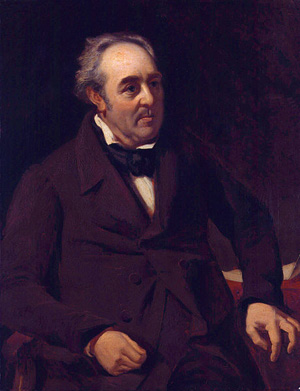To Corinth
Walter Savage Landor
QUEEN of the double sea, beloved of him
Who shakes the world’s foundations, thou hast seen
Glory in all her beauty, all her forms;
Seen her walk back with Theseus when he left
The bones of Sciron bleaching to the wind,
Above the ocean’s roar and cormorant’s flight,
So high that vastest billows from above
Show but like herbage waving in the mead;
Seen generations throng thy Isthmian games,
And pass away,—the beautiful, the brave,
And them who sang their praises.
But, O queen,
Audible still, and far beyond thy cliffs,
As when they first were uttered, are those words
Divine which praised the valiant and the just;
And tears have often stopt, upon that ridge
So perilous, him who brought before his eye
The Colchian babes.
“Stay! spare him! save the last!
Medea!—is that blood? again! it drops
From my imploring hand upon my feet!—
I will invoke the Eumenides no more.
I will forgive thee,—bless thee,—bend to thee
In all thy wishes,—do but thou, Medea,
Tell me, one lives.”
“And shall I too deceive?”
Cries from the fiery car an angry voice;
And swifter than two falling stars descend
Two breathless bodies,—warm, soft, motionless,
As flowers in stillest noon before the sun,
They lie three paces from him,—such they lie
As when he left them sleeping side by side,
A mother’s arm round each, a mother’s cheeks
Between them, flushed with happiness and love.
He was more changed than they were,—doomed to show
Thee and the stranger, how defaced and scarred
Grief hunts us down the precipice of years,
And whom the faithless prey upon the last.
To give the inertest masses of our earth
Her loveliest forms was thine, to fix the gods
Within thy walls, and hang their tripods round
With fruits and foliage knowing not decay.
A nobler work remains: thy citadel
Invites all Greece; o’er lands and floods remote
Many are the hearts that still beat high for thee:
Confide then in thy strength, and unappalled
Look down upon the plain, while yokemate kings
Run bellowing, where their herdsmen goad them on;
Instinct is sharp in them, and terror true,—
They smell the floor whereon their necks must lie.
